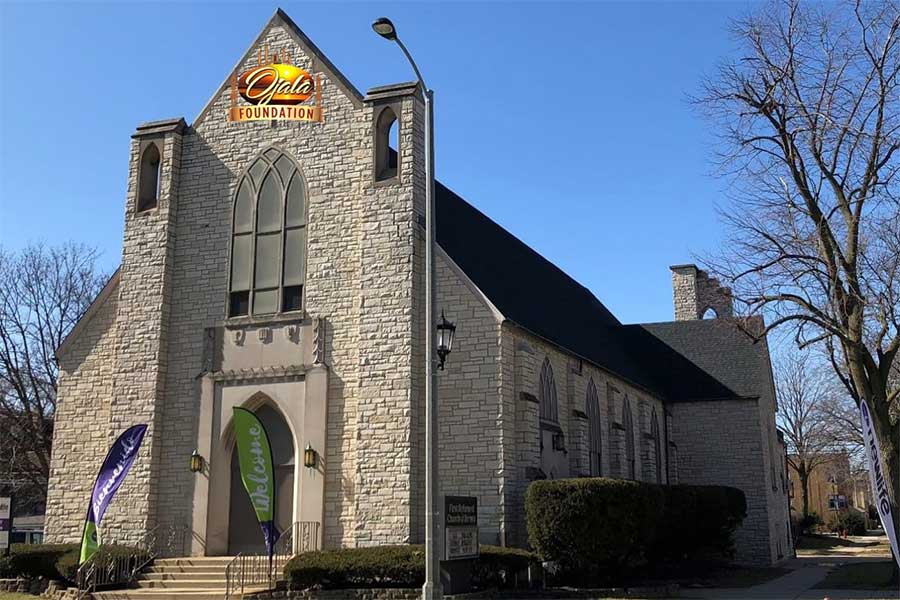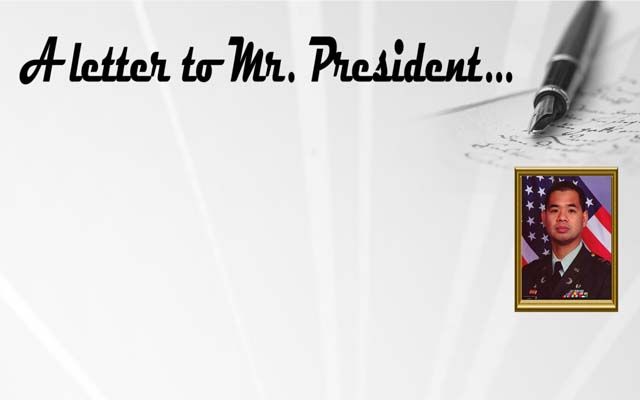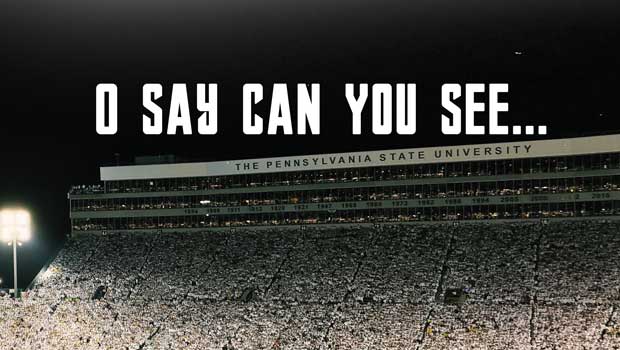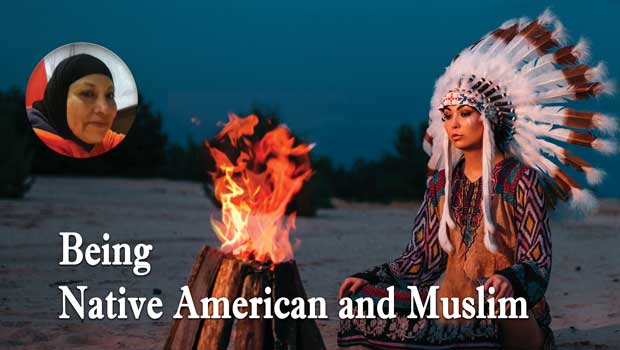The Prophet Muhammad (peace and blessings be upon him) once said:
“Take up good deeds only as much as you are able, for the best deeds are those done regularly even if they are few.” (Musnad Aḥmad, 8600)
This hadith captures the spirit of Chicago’s Ojalá Foundation, a Latino-led Muslim organization dedicated to serving both the growing Latino Muslim community and the city’s most vulnerable residents. September marks Hunger Action Month, a nationwide call to raise awareness about food insecurity and mobilize communities to respond. Ojalá, its very name being a Spanish expression of hope derived from the Arabic insha’Allah (“God willing”), has embraced this mission wholeheartedly, making the fight against hunger a cornerstone of its work. For more than six years, the Foundation’s volunteers have gathered every Friday to serve Chicago’s homeless, embodying the Islamic teaching that the best deeds are those done consistently.
Consistent compassion: The foundation of Ojalá
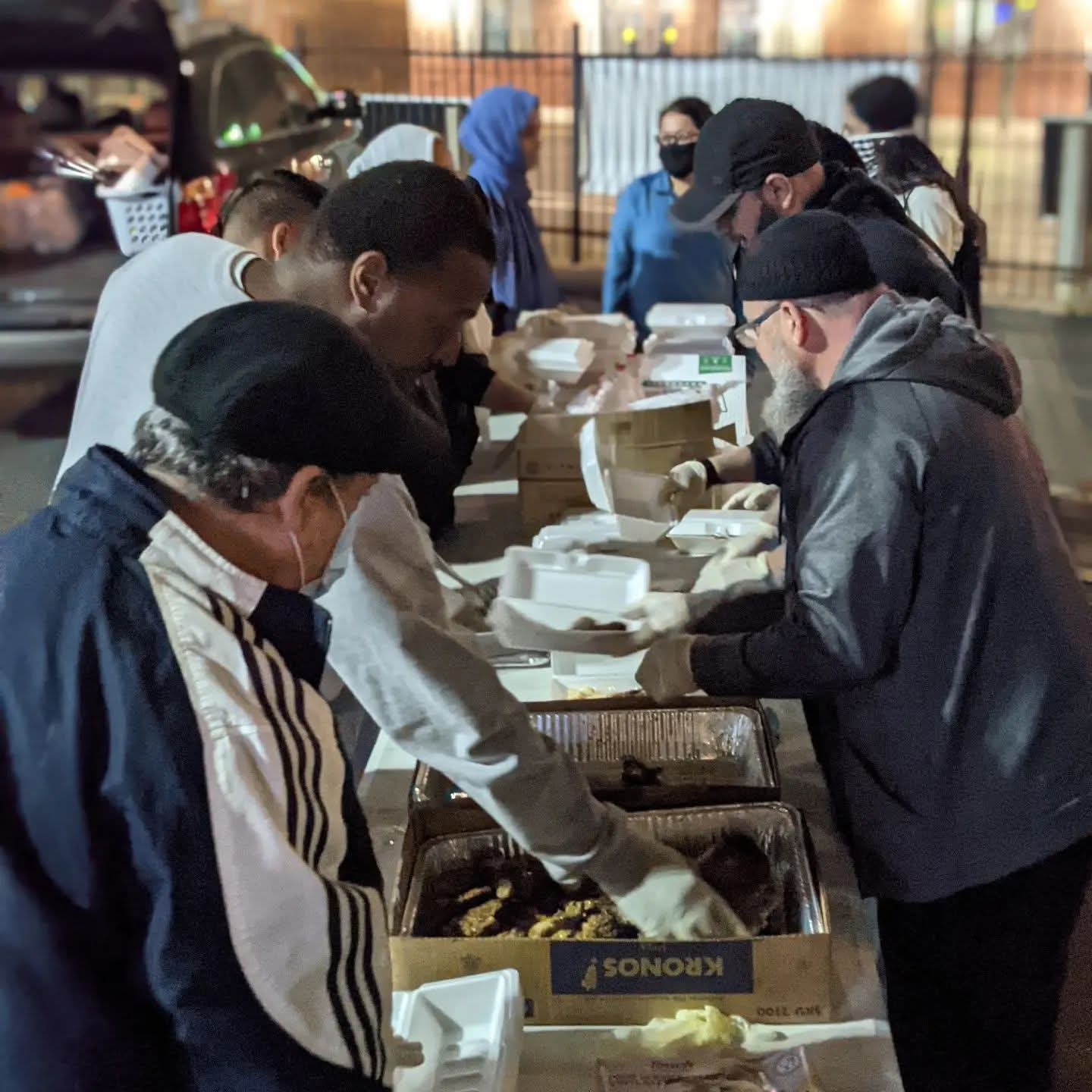 In 2019, I interviewed Imam Christopher Pavlicek and several of the group’s founding members, including Shirley Chun and Raúl Gonzalez, for an article about service to humanity. This new feature revisits that conversation, offering a deeper look into how their faith-based outreach has evolved. At the time, the Foundation had only been established in May of 2018. Yet even in its early stages, its work was making a notable impact. By that fall, Ojalá had launched Neighborly Deeds, a weekly outreach program that continues to this day. With fewer than a dozen volunteers in the beginning, they prepared warm meals and distributed clothing, blankets, hygiene products, and other essentials to the homeless in the west and southwest sides of Chicago. Every Friday since then, without fail, Ojalá has carried forward this faith-driven effort, touching countless lives with consistent generosity. It is a work steeped in love and faith.
In 2019, I interviewed Imam Christopher Pavlicek and several of the group’s founding members, including Shirley Chun and Raúl Gonzalez, for an article about service to humanity. This new feature revisits that conversation, offering a deeper look into how their faith-based outreach has evolved. At the time, the Foundation had only been established in May of 2018. Yet even in its early stages, its work was making a notable impact. By that fall, Ojalá had launched Neighborly Deeds, a weekly outreach program that continues to this day. With fewer than a dozen volunteers in the beginning, they prepared warm meals and distributed clothing, blankets, hygiene products, and other essentials to the homeless in the west and southwest sides of Chicago. Every Friday since then, without fail, Ojalá has carried forward this faith-driven effort, touching countless lives with consistent generosity. It is a work steeped in love and faith.
For Imam Chris, the work is deeply personal. Growing up in a predominantly Latino neighborhood, he witnessed hardship firsthand, and he believes food is a bridge that connects people. “There are so many stories,” he said, reflecting on years of outreach, “but one of the success stories I always carry with me is a man named Mike.”
Mike lived on the streets for years, setting up a small space where Ojalá’s Neighborly Deeds volunteers would often find him. “He was overly friendly,” Imam Chris recalled. “He would shout ‘hello’ every week when we came by. I am pretty sure we were the first Muslims he ever interacted with.” Over time, and with the support of those he considered his new friends, Mike found the strength to leave the streets behind. When he finally approached the group again, it was on a bicycle. “He said, ‘I got my own little space now. I’m living off the streets,’” Imam Chris shared. “That moved me because I know it’s possible. Now every time we see him, it feels like seeing a friend or family member.”
The Foundation’s work goes above and beyond handing out meals. As Imam Chris explained, it is really about building relationships and recognizing that those on the streets are not so different from us. Mike is just one example of how Ojalá has touched lives in lasting ways. Volunteers know people by name, embrace them like family, and share warm, home-cooked food.
“Maybe it’s not doctor-approved,” Imam Chris joked, “but we’re hugging people every week. It humanizes both of us.”
For Ojalá’s volunteers, the real impact involves more than nourishment for the stomach. They also nourish the soul by restoring dignity, offering touch, and creating connection – the very things every human being needs to flourish.
This intimate approach has affected not only those who receive meals but also those who hand them out. Imam Chris noted volunteers find healing through the work.
“We’ve had people say they felt lost, even suicidal, until they came here. Serving gave them a sense of value, like ‘I am doing something for someone else, I matter.’ It has created a community where we didn’t even know we had one at first,” he said.
Even during the height of the Covid-19 pandemic, when most outreach efforts were forced to pause, Ojalá’s commitment never wavered. With safety restrictions in place and volunteer numbers drastically reduced, the work continued through the dedication of just three brothers who went out week after week to serve meals. Others supported the mission from home by cooking and donating food to keep it alive.
Imam Chris said, “It saved us to go out and give food.”
Even in a time of isolation and fear, service became a source of healing and connection for those receiving and for those giving.
From the streets to a spiritual home
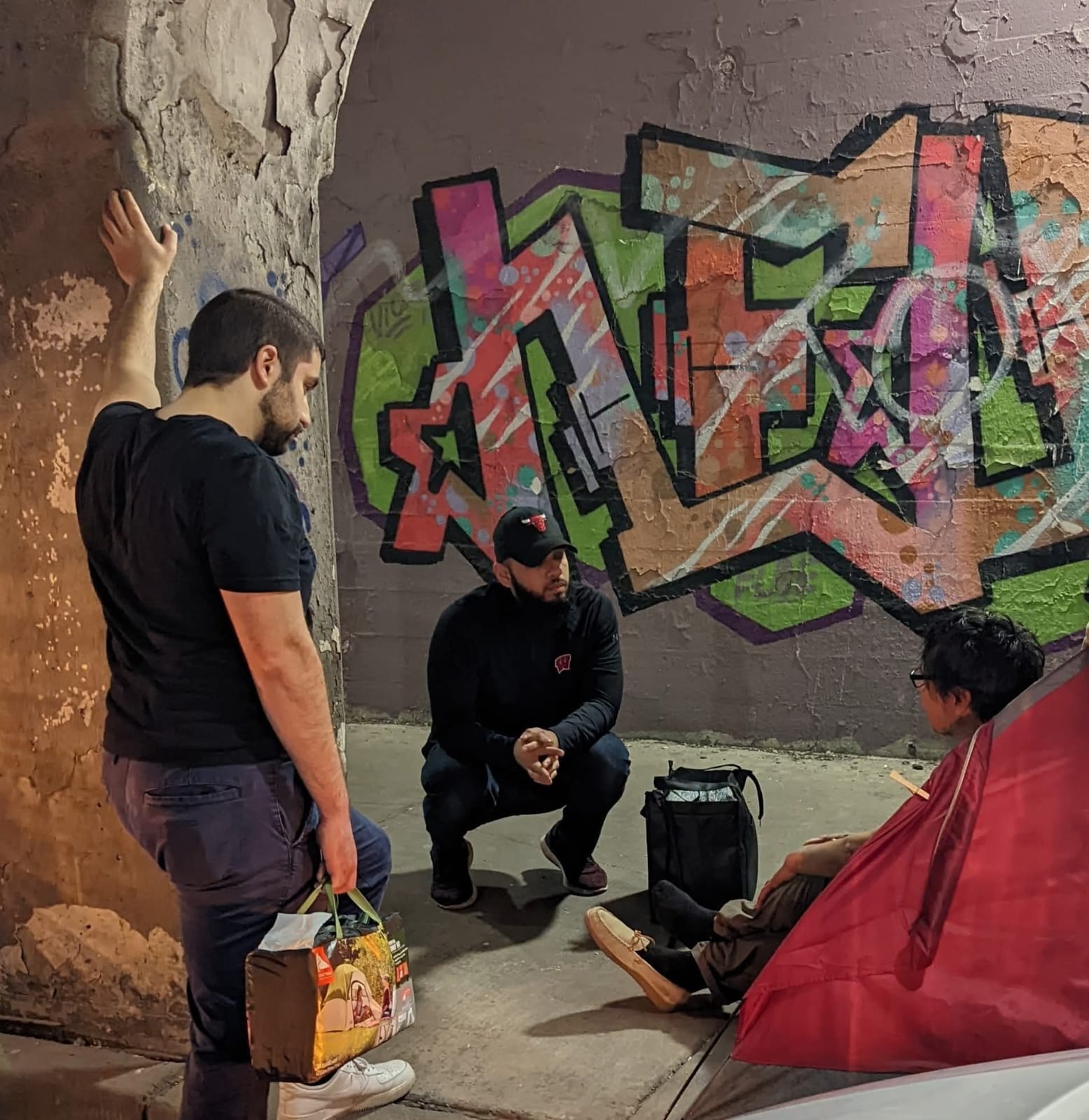 Allah says in the Qur’an, “Is there any reward for goodness except goodness?” (Qur’an 55:60) After years of serving others with limited resources and no headquarters, that goodness was returned to them in the form of the very community they helped build. In 2025, the Ojalá Foundation acquired an old church and converted it into a mosque and community center, establishing a permanent home. For Imam Chris, this space changes everything.
Allah says in the Qur’an, “Is there any reward for goodness except goodness?” (Qur’an 55:60) After years of serving others with limited resources and no headquarters, that goodness was returned to them in the form of the very community they helped build. In 2025, the Ojalá Foundation acquired an old church and converted it into a mosque and community center, establishing a permanent home. For Imam Chris, this space changes everything.
“For years, people on the streets would ask us, ‘Where is your church?’ Now we have a place to direct them to. It has a kitchen, so people can cook meals on-site, and it will host programs like NA and AA to help those struggling with addiction.”
This story carries a certain irony. Those unfamiliar with Islam would ask about a “church,” not realizing that Muslims worship in mosques. And yet, in a twist that feels divinely orchestrated, Ojalá ended up purchasing a church that now serves as their mosque and headquarters. It is as if Allah (SWT) gave them exactly what was needed yet in the most unexpected form.
The spacious and welcoming Ojalá Islamic Center has already hosted back-to-school drives, clothing giveaways, and cultural events that bring neighbors together. Though the new mosque is in a Latino-majority neighborhood, the center has become a hub for converts of all backgrounds.
“We are surrounded by Mexican, Puerto Rican, Guatemalan, and many other Latino communities, but we also welcome converts from Polish, Italian, Vietnamese, and other backgrounds,” Imam Chris said. “It has become a place where people feel they do not have to give up their culture to be Muslim. They are embraced as they are.”
The Ojalá Foundation’s story is one of consistent faith in action, where a plate of food becomes a bridge, where service creates family, and where an old church turned mosque now stands as a symbol of unity in the heart of Chicago. Just as the word “Ojalá” is associated with prayer and hope, so we pray for their success and a reward proportionate to their contributions to the community. As Allah says:
“Whoever does good, whether male or female, and is a believer, We will surely bless them with a good life, and We will certainly reward them according to the best of their deeds.” (Quran 16:97)
Answering the call to serve
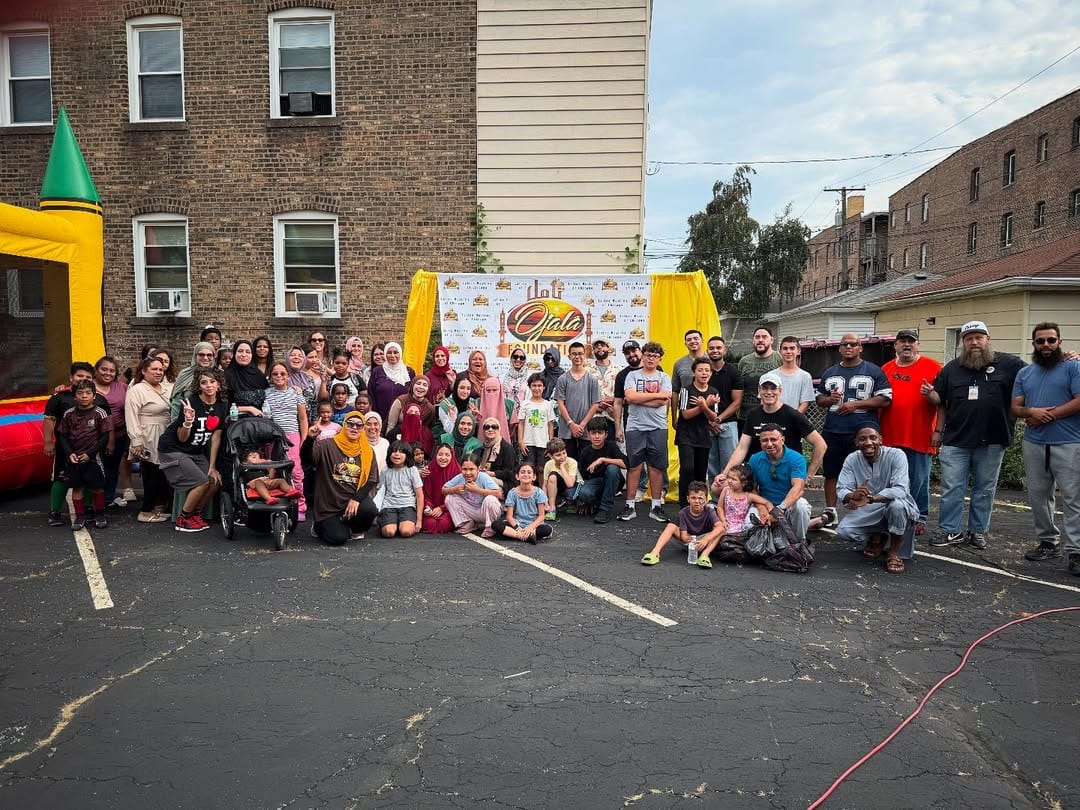 Hunger Action Month reminds us that the fight against hunger requires collective responsibility. A small effort like providing a meal or assistance to someone less fortunate, when done consistently, can spark a movement for social change. Imam Chris encourages other communities to take the first step.
Hunger Action Month reminds us that the fight against hunger requires collective responsibility. A small effort like providing a meal or assistance to someone less fortunate, when done consistently, can spark a movement for social change. Imam Chris encourages other communities to take the first step.
“There are people in need everywhere. Even if it’s just once a month, come together, prepare some meals, and collaborate with a shelter. The blessings that come out of it are unbelievable. Hand-to-hand, face-to-face, that is the key,” he said.
You can also help support Ojalá Foundation. Here are a few ways you can get involved in the fight against hunger:
- Volunteer: Those in the Chicagoland area can join the weekly food distributions or help prepare meals.
- Donate: Financial contributions support meal programs, clothing drives, and community outreach.
- Partner: Other faith communities and organizations are welcome to collaborate with Ojalá Foundation on local initiatives, drives, and events.
- Spread the Word: Share their mission with friends, neighbors, and community organizations.
Contact: Ojalá Foundation and Ojalá Islamic Center
1900 S Oak Park Ave, Berwyn, IL 60402
Email: info@ojalafoundation.org
Website: ojalafoundation.org

